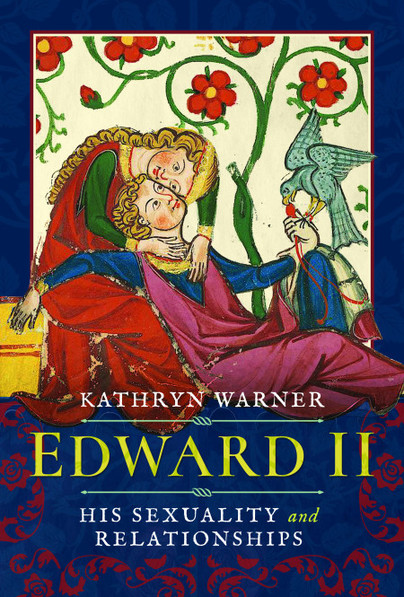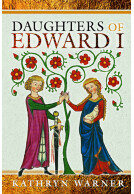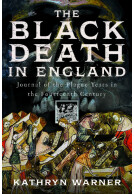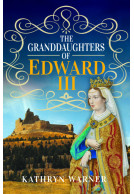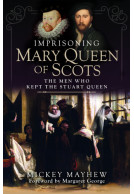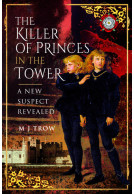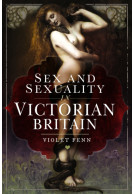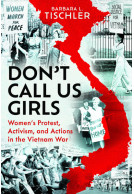Edward II (Hardback)
His Sexuality and Relationships
Imprint: Pen & Sword History
Pages: 208
Illustrations: 25 mono
ISBN: 9781399098175
Published: 14th March 2024
(click here for international delivery rates)
Need a currency converter? Check XE.com for live rates
| Other formats available - Buy the Hardback and get the eBook for £1.99! | Price |
|---|---|
| Edward II ePub (4.1 MB) Add to Basket | £6.99 |
Edward II is one of the most unsuccessful and unconventional kings in English history, and is well-known for having passionate and probably intimate relationships with men. In modern times, he has often been considered an LGBT+ icon of sorts. Edward II’s Relationships looks at the men in the king’s life and examines the relations he had with them in the context of medieval notions of sexuality and the famous, albeit almost certainly mythical, idea that he was murdered with a red-hot poker as punishment for having sex with men.
It also investigates Edward’s associations with women. Though often thought of as a gay man, it is more likely that Edward was bisexual: he fathered an illegitimate son in his early twenties, at the age of forty had an intimate encounter with a woman in London which is recorded in his household account, and might even have had an incestuous relationship with his own niece.
Edward’s marriage to the king of France’s daughter Isabella, arranged when they were children, has often been depicted as a tragic disaster from start to finish. Edward II’s Relationships takes a detailed look at the royal marriage and at all the evidence that it was in fact a happy and mutually supportive partnership for many years, and at Isabella’s important though over-romanticised association with the baron Roger Mortimer.
Because Edward is often assumed to have been solely attracted to men, numerous modern authors have depicted him as a grotesque caricature of a camp, weak, foppish gay man. Edward II’s Relationships reveals him as he truly was: as a chronicler puts it, ‘one of the strongest men in his realm’.
Rating: 5 out of 5 stars
NetGalley, Leslie Jaszczak
Edward II is one of the few kings of England who it can be plausibly argued had attractions to and/or relationships with people of the same sex. However, there is controversy as to how far these went as well as how they affected his relationship with his queen, Isabella of France, who eventually deposed him in favor of their young son, Edward III. In Edward II: His Sexuality and Relationships, Kathryn Warner takes a detailed look at these questions and disposes effectively of some of the common - and often completely uncorroborated - narratives that “everyone knows.”
Most crucially, Warner makes two main points: 1) We know literally nothing directly about people’s actual behavior, or usually even their feelings about one another. 2) Our modern categories of gay, straight, bi, etc. would have had no meaning for medieval people.
She also examines two types of writers, historians/biographers and novelists, and how they look at the issues at hand. The first seem to take a very black and white view of things, either completely denying that Edward had any same-sex attractions - presumably his relationships with his favorites were based on emotional dependency, or that he had absolutely no interest in women. Reasonably, she asks why he could not have been attracted in different ways to both, especially given that he had at least one illegitimate son and Isabella became pregnant several times, when if she was actually repulsive to him, one or two should have been enough. Often, it seems as if the second type of biographers she looks at thought they were novelists, regurgitating well-known stories such as that Edward gave Isabella’s “bridal gifts” to his favorite of the time, Piers Gaveston, that there was antipathy between Isabella and Gaveston, and that the marriage was bad from the start, for which there seems to be little or no evidence. The actual novelists, although they have more leeway, fare little better in her estimation, and sometimes it’s difficult to tell the difference between them and some of the more wild assumptions of the so-called non-fiction writers.
Also, while there is at least some hesitation about Edward’s actual behavior, almost everyone, whether biographer or novelist, jumps to the immediate conclusion that Isabella and Roger Mortimer, her partner in deposing Edward and ruling England afterward until Edward III took the reins, had a mad, passionate love affair, again, with no evidence or contemporary corroboration. Of course, their relationship easily could have been more pragmatic, especially since Edward’s last favorite, Hugh Despenser the Younger, did apparently cause Isabella's marriage to go downhill and even made her fear for her safety, which seems to have provided enough motivation.
The thing that really surprised me in this very well-written and -argued book is how much even the most modern writers seem to be influenced by stereotypes of both women and LGBT people that we supposedly jettisoned decades ago. Despite his reputation at the time as a fit and physically strong man and his apparently respectful relationship with Isabella in the first part of their marriage, Edward (along with his favorites) tends to be portrayed - especially in fiction - using the worst possible stereotypes, as physically weedy, weak, and spiteful, as well as utterly repulsed by women. Even the fact that he did not consummate his marriage - with his 12-year-old bride - immediately is used as evidence that he “neglected” her, when in most people we would see that as a positive. No one needs to claim that he was a good king to admit that he, like all of us, was a complicated human being with good and bad points. Isabella, on the other hand, is shown by the novelists as either the vengeful, power-hungry “she-wolf,” (a phrase that was evidently never used to describe her in her lifetime) conniving to destroy her husband or, alternatively, totally under the spell of her lust for a stereotypically masculine and virile Mortimer.
Edward II: His Sexuality and Relationships provides a much-needed corrective to the very slanted view that many books - both fiction and non-fiction - give us of all of these characters, but particularly Edward and Isabella.
In this interesting historical book, Kathryn Warner explores Edward II of England’s ambiguous sexuality, his relationships with his wife Isabella of France and his favorite Piers Galveston, and the impacts that these relationships had on early fourteenth-century England and its politics. By exploring period notions of sex and sexuality and using these to analyze Edward II’s relationships, Warner chronicles the life of this unconventional English monarch in this fascinating biography. Warner’s expertise in the period and her familiarity with the Plantagenet dynasty shows in this book; the quality of analysis and historical detail really brings this book to life and emphasizes the points of analysis. By considering these points of analysis and using contemporary ideas of sexuality in this book, Warner suggests that Edward II was bisexual rather than gay and explores his complicated relationship with Isabella of France (who had her own notable affair with Roger Mortimer) to back up her theory. This fascinating history of sexuality and the challenges of LGBTQ+ identity (using the modern terminology) in medieval Europe is a fantastic addition to current literature about the Plantagenets and Edward II. A great history book about Edward II that theorizes about his sexuality, readers will enjoy Warner’s latest book about medieval England.
NetGalley, Lily Amidon
Rating: 5 out of 5 stars
NetGalley, Stephanie Peterson
Edward II is someone I have not studied before. My focus has mainly been on the Tudors dynasty. This book is very intriguing and informative. I am looking forward to learning more about him and Isabella in other works. This book is a great jumping off point.
Edward II has gripped the fascination of historians and individuals for centuries as to who he was. Was he a man who loved solely men or was he someone with an unapologetic view of love that anyone can love either gender indiscriminately? We may never know. In her book, Edward II: His Sexuality and Relationships, Kathryn Warner strips away the myths, rumours and Shakespearean retelling of him and tells the story of Edward II plainly without any bravado or leaning towards a singular narrative. I thoroughly enjoyed Warner's book as it broke down each aspect of Edward II's life (both personal and public). I highly recommend this to any history fan who wants to see the story of Edward II with less Shakespearean certainty and more ambiguity.
NetGalley, Megan Rose
Rating: 5 out of 5 stars
NetGalley, Emma Potter
I thought this book would be a normal history book explaining the author's theories and evidence for them.
Instead, it's an epic blow by blow take down of authors and historians who believe that if a man in the past was interested in other men, it meant they didn't care about the women they married.
Kathryn Warner masterfully navigates contemporary evidence and the language to show that may not have been the case and debunks the sexist theories that Isabella must have had an affair with Roger Mortimer because her husband had male lovers, and that Edward's lovers turned him against her as well as his kingdom
Rating: 5 out of 5 stars
NetGalley, Nicholas Artrip
I was super excited to see this title! I really enjoyed Warner’s Edward II: The Unconventional King which provided an in-depth look at the monarch’s controversial reign, so I had high expectations for this volume. I was not disappointed! In her introduction, Warner is clear about the nature of her work from the outset. She cites the tendency of some historians to underplay his same-sex relationships while also acknowledging the tendency of others to underplay his relationships with women. She isn’t seeking to make any solid claims about his sexuality based on modern understanding, but rather examining what we know and can reasonably infer about his relationships.
Warner tackles a lot in this volume. She addresses not only Edward II’s potential sexual relationships, but also his relationships with commoners and what we can assess about his real nature. She seeks to dismantle the typical Edward/Isabella narrative and interrogate the misconceptions that have become staples of their cultural depictions. She also poses the questions of why we force Isabella and Mortimer into this passionate, adulterous space despite the lack of direct evidence, but squabble over Edward II’s sexual preferences which can perhaps more easily be more easily argued? “It is as though same-sex relationships are to be dismissed unless they reach an almost impossibly high level of proof, whereas heterosexual relationships are held to very different standards.”
“Mortimer is invariably described as the queen’s ‘lover’, as though webcam footage of Isabella’s bedchamber exists and we therefore know beyond all possible doubt that the two had sex.”
Another great point raised about our unconventional king is how he is physically portrayed in pop-culture. He is often depicted as campy, vain, and effeminate, despite accounts to the contrary. This was a quick read that was packed to the brim with details, but didn’t feel overtaxing thanks largely to Warner’s compulsively readable writing-style. The author offers facts and straightforward criticism of the way we discuss and retell the stories of Edward II, but also does a terrific job of tackling our cultural misconceptions surrounding Isabella. Through careful analysis of fact versus fiction, we’re shown what a disservice we have done to a complicated and compelling woman, often with perceptions that are deeply rooted in misogynistic thought.
Rating: 5 out of 5 stars
NetGalley, Andrea Romance
This nuanced exploration delves into the unconventional life of Edward II, the controversial English king sometimes celebrated as a gay icon for his relationships with men. Going beyond the shocking myth about his death, the book examines evidence supporting Edward’s bisexuality through his affairs with both men and women. It also reevaluates his marriage to Isabella of France, portraying its initial happiness—before the threats from Hugh Despenser and her alliance with Roger Mortimer led to tragedy.
This book refutes 700 years of misinformation to reveal what can truly be known about the marriage of Edward and Isabella, and the other people they may have loved. It’s a fascinating and much-needed correction that sweeps away ugly stereotypes to show the real human beings underneath. It’s a smart, insightful, compassionate, and enjoyable read that made me want to cheer.
About Kathryn Warner
Kathryn Warner holds a BA and an MA with Distinction in medieval history and literature from the University of Manchester, and is the author of biographies about Edward II and his queen Isabella. Kathryn has had work published in the English Historical Review, has given a paper at the International Medieval Congress, and appeared in a BBC documentary.







